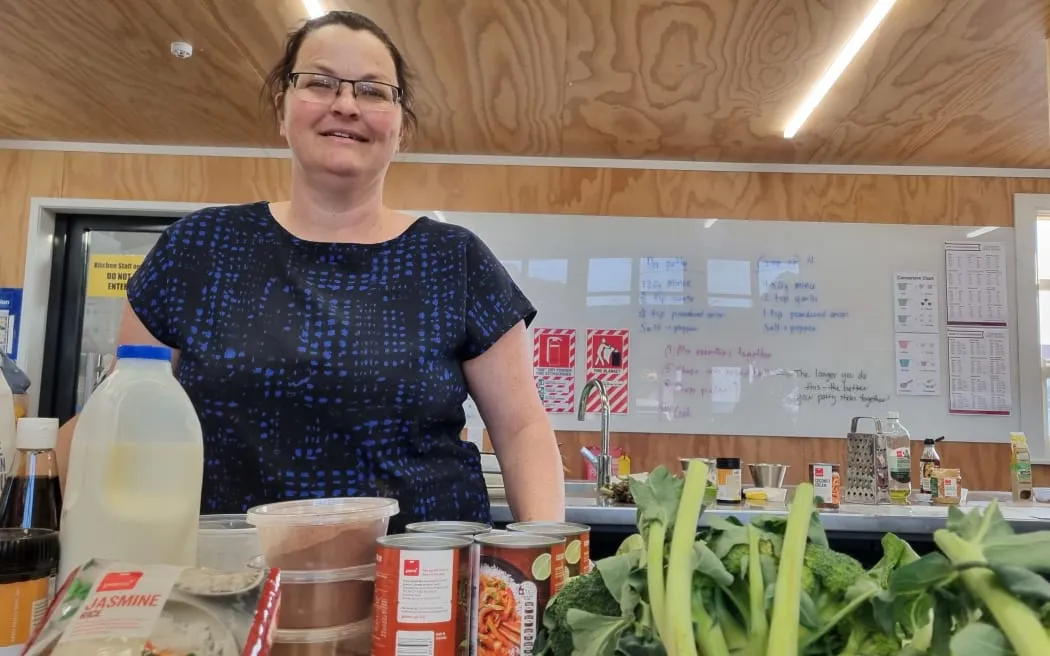Tackling Food Insecurity in Taranaki: A New Approach to Food Sovereignty
The cost-of-living crisis has hit New Zealand hard, and one of the most affected groups is those struggling with food insecurity. The Waitara Pataka Kai foodbank in Taranaki is leading the way in a new approach to addressing this issue – prioritizing food sovereignty.
Breaking the Cycle of Dependency
Staff at the Waitara Foodbank have seen an increase in new faces walking through their doors, but community donations are not keeping up with the demand. The foodbank’s co-chairperson, Tiri Porter (Te Ātiawa, Ngāpuhi), explains that the current system is broken and relies on dependency for funding.
“It’s desperate times for people,” she says. “The cost-of-living crisis affects us all, and it’s aggravated for a generation of people who have never learned how to cook or grow kai.”
A New Focus on Food Resilience
Instead of just providing food parcels, the Waitara Pataka Kai is focusing on building food resilience. Operations manager Amy Olsen is leading the effort, with 35 volunteers working together to create a sustainable solution.
“We’re listening to the people and doing everything that we do here is community-led and community-driven,” says Olsen. “Our priority is learning how to use what you’ve already got – it’s not just about growing your own food, but also about using existing resources.”
The Power of Community Gardens
A key part of this new approach is the development of a community garden. The Waitara branch has become a hub for people to come together and grow their own kai, with the added benefit of social interaction.
“A lot of people said they would just love to have somewhere they could go to freely and hang out with other people,” says Olsen. “It wasn’t even just about the food – it shocked me actually – one of the main reasons people want a community garden is the social side of it.”
More Than Just Food
Olsen highlights that food insecurity often affects multiple aspects of a person’s life. By providing access to healthy, affordable food, the Waitara Pataka Kai is also addressing other critical needs such as mental health and well-being.
“Because food is only one of the things that someone needs, and if you’re hungry, there are 12 other things that suffer,” Olsen says.
A Community-Led Approach
The success of the Waitara Pataka Kai is largely due to its community-led approach. The team is working closely with local residents to identify their needs and develop solutions that cater to those needs.
“The donations we received for our annual community collections run were overwhelming, overjoyed, overtired, and completely in awe,” says Olsen. “It’s a testament to the power of community-driven initiatives.”
A New Way Forward
As the Waitara Pataka Kai continues to grow and evolve, it’s clear that this new approach to food sovereignty is not just about providing food – it’s about building strong, resilient communities.
By prioritizing food resilience and community-led initiatives, we can create a more sustainable future for those struggling with food insecurity. The Waitara Pataka Kai is leading the way, and its success serves as a model for others to follow.

0 Comments